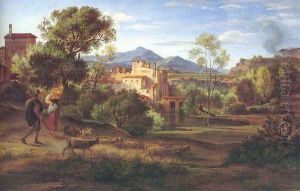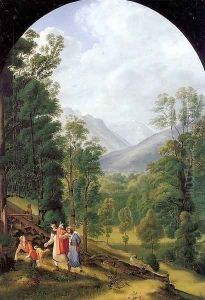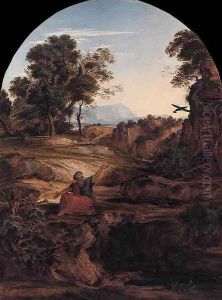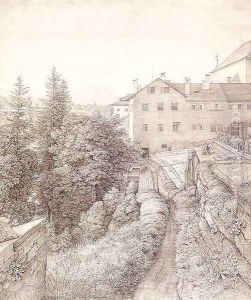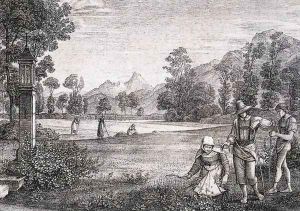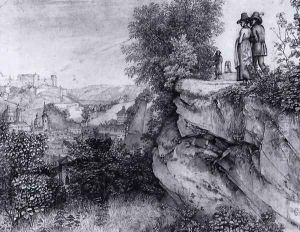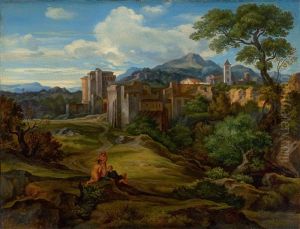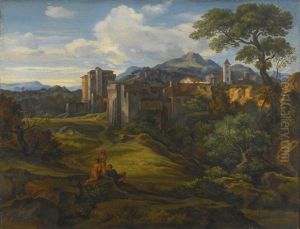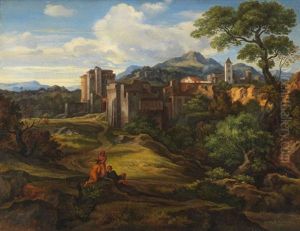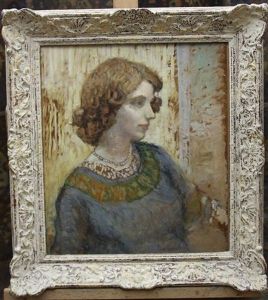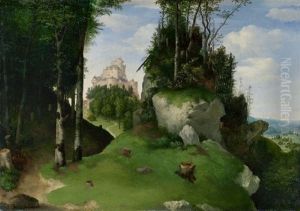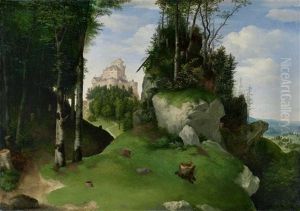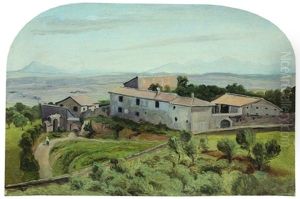Johann Heinrich Ferdinand Olivier Paintings
Johann Heinrich Ferdinand Olivier, known simply as Ferdinand Olivier, was a notable German painter associated with the Romantic movement, born on April 1, 1785, in Dessau, Germany. His work is characterized by its meticulous detail, emotional depth, and a profound connection to nature, aligning him with the ideals of the Romantic era that sought to capture the sublime and the majestic aspects of the natural world. Olivier's artistic journey was deeply influenced by his early exposure to art and culture, stemming from a family background that valued the arts.
Ferdinand Olivier received his initial artistic training in Dresden before moving to Vienna, where he continued his studies and began to establish himself as an artist. It was during this period that he became closely associated with the Nazarene movement, a group of early 19th-century German Romantic painters who aimed to revive honesty and spirituality in Christian art. This affiliation greatly influenced Olivier's style, leading him to adopt a more religious and mystical approach to his works, which were often characterized by their clarity, detail, and serene landscapes.
In 1815, Olivier moved to Rome, which was a significant turning point in his career. The city's classical ruins and the surrounding countryside's sublime landscapes deeply inspired him. This period was marked by prolific artistic output and the development of his distinct style that harmoniously blended classical and Romantic elements. Olivier's landscapes from this period are particularly notable for their detailed precision and the spiritual ambiance they evoke, reflecting his deep reverence for nature.
After his time in Italy, Olivier returned to Germany, where he continued to work and exhibit his art. He became a respected figure in the German art scene, contributing to various artistic communities and influencing younger artists with his vision and technique. Despite facing personal and financial challenges, Olivier remained dedicated to his art, exploring themes of nature, religion, and mythology with a poetic sensitivity that has continued to captivate audiences.
Ferdinand Olivier's legacy is marked by his contribution to the Romantic movement and his influence on the development of landscape painting in the 19th century. His works are celebrated for their beauty, technical skill, and the emotional depth they convey. Olivier died on February 11, 1841, in Munich, Germany, leaving behind a body of work that continues to be admired for its artistic integrity and spiritual depth.
